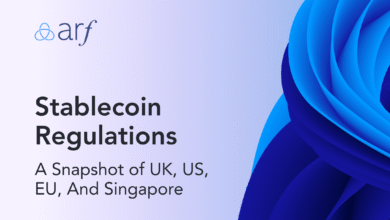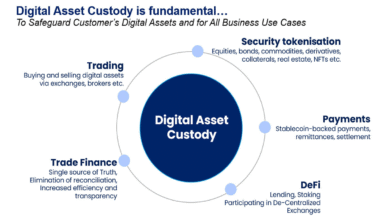Telegram Censorship: Durov’s Stand for Free Speech

Telegram censorship has emerged as a pivotal issue in the ongoing discourse about free speech in digital spaces, particularly highlighted by the actions of Telegram’s founder, Pavel Durov. In a recent controversy, Durov publicly declined requests from French intelligence to silence conservative voices, emphasizing the platform’s commitment to preserving democratic principles. His assertion that censoring dissenting opinions, especially in light of international events like the Romanian elections, runs counter to the essence of free speech has sparked a broader debate on political influence and moderation on social media. Durov’s steadfast rejection of pressure from government authorities showcases the tension between security and personal liberties that many encrypted messaging services face today. This struggle illustrates the complexities involved in Telegram moderation—balancing the treatment of harmful content while fostering an environment conducive to open dialogue.
The landscape surrounding the governance of messaging platforms like Telegram is fraught with challenges involving digital expression and oversight. As the dialogue continues, the tension between maintaining user privacy and ensuring safe communication becomes increasingly pronounced. The founder of Telegram, Pavel Durov, has found himself at the center of this intricate debate, especially in light of external requests to moderate content more aggressively. With pressures from national security agencies, such as those from France, the implications on courteous discourse are vast and multifaceted. This ongoing clash highlights essential questions about the role of technology in safeguarding rights while simultaneously addressing the demand for accountability regarding misinformation and harmful content.
The Stance of Pavel Durov on Free Speech
Pavel Durov, the founder of Telegram, has taken a firm stand on the issue of free speech, particularly in the face of external pressures from government authorities. When approached by French intelligence, he resisted their demands to censor conservative voices on the platform. This confrontation highlighted Durov’s belief that platforms like Telegram should champion freedom of expression rather than stifle it. By prioritizing free speech, Durov positions Telegram as a space for open dialogue, even if it means facing backlash from governments that seek to control narratives.
Durov’s insistence on maintaining a neutral stance underscores a broader commitment to democratic principles. He has articulated the dangers inherent in sacrificing freedoms under the guise of protecting democracy, arguing that true democratic values cannot coexist with censorship. This philosophy has sparked discussions about the responsibilities of tech companies in moderating content while safeguarding users’ rights, which is particularly relevant in today’s politically charged environment.
Government Requests and Telegram Moderation Policies
The issue of Telegram censorship brings to light the complex relationship between technology firms and government authorities. Durov’s recent experiences with French intelligence exemplify the tug-of-war over content moderation policies. Telegram has implemented a range of measures since 2018 to combat abuse on its platform; however, the demands from governmental bodies often conflict with the ethos of free speech. The balancing act involves negotiating user safety while avoiding overreach that could lead to political bias. Durov has publicly critiqued the motivations behind requests from intelligence services, suggesting they often mask ulterior political agendas.
As Telegram navigates these pressures, Durov’s policies reflect a determined effort to maintain transparency and accountability. He has committed to regular reporting on content moderation, which serves to bolster public trust in the platform’s commitment to combating illegal content without compromising individual freedoms. This proactive approach aims to demonstrate that effective moderation can occur without succumbing to political influence, marking Telegram as a notable player in discussions surrounding digital rights and responsibilities.
The Impact of Telegram on Political Discourse
Telegram’s role in facilitating political discourse is increasingly significant, especially in regions where freedom of speech is under threat. Durov’s staunch defense against censorship reflects a growing awareness of how social media platforms can influence democratic processes. By resisting pressure to censor political voices during sensitive election periods, Telegram has positioned itself as a bastion for free speech, providing a platform for dissenting opinions that might otherwise be silenced.
The implications of Durov’s stance extend beyond national borders, impacting global conversations about the balance between security and individual freedoms. As debates around encryption and content moderation intensify, Telegram showcases how technology can empower users to engage in vital democratic exchanges. Durov’s defiance against censorship illustrates a larger movement of internet platforms advocating for user autonomy against external political pressures, making Telegram a pivotal player in the ongoing narrative of digital freedom.
The Risks of Censorship in Election Processes
Pavel Durov’s confrontation with the French authorities sheds light on the broader implications of censorship within election processes. His assertion that “you can’t fight election interference by interfering with elections” reveals the risks associated with government-imposed restrictions on free speech. In politically sensitive contexts, such as the Romanian elections mentioned in Durov’s statement, censorship can distort public perception and undermine democratic integrity.
Moreover, Durov’s refusal to collude with French intelligence attempts to manipulate the narrative signals a critical moment in the evolution of tech companies’ roles in politics. It raises essential questions about how much influence governments should have over digital communication channels, especially in crucial times like elections. By championing unfiltered political discourse, Telegram emphasizes the necessity of protecting both users’ rights and the integrity of the democratic process.
French Intelligence and Its Alleged Influence
The intervention of French intelligence in requesting Telegram to censor specific political voices reveals the complexities at the intersection of national security and free speech. Durov described the DGSE’s approach as focused on geopolitical interests rather than genuine concerns about public safety. This highlights a troubling perspective that intelligence agencies might prioritize political influence over their stated goals of protecting citizens from threats like terrorism.
The backlash from Durov’s statement not only raises questions about the ethics of such governmental interventions but also reflects a broader skepticism about intelligence agencies’ roles in shaping political narratives. Their denials of intent to influence elections may lack credibility in light of Durov’s description, suggesting that the balance between combatting illegal content and political manipulation remains delicate and contentious.
Telegram’s Approach to Content Moderation
Durov’s approach to content and moderation on Telegram since 2018 reveals a commitment to addressing abuse while simultaneously protecting free speech. Although he has implemented certain content bans to comply with local laws, Durov insists that these measures are carefully balanced to avoid straying into censorship. By maintaining ongoing transparency through regular reports, he attempts to mitigate criticisms regarding the platform’s effectiveness in managing harmful content.
This nuanced approach reflects the challenges facing messaging platforms in an era where misinformation and harmful content are prevalent. Durov’s history of resisting censorship emphasizes his intent to cultivate a platform culture that respects user freedoms while still taking necessary steps to uphold safety standards. His commitment to transparency is touted as an operational principle that should guide technological governance across the board.
The Controversy Surrounding Durov’s Detainment
Durov’s brief detention by French authorities on charges related to content moderation inadequacies further complicates the narrative surrounding Telegram’s operations. This incident illustrates the tangible repercussions that founders of tech platforms may face when standing up against government pressure. The scrutiny that Durov experienced not only spotlighted the ongoing tensions between encrypted platforms and state authorities but also raised questions about the limits of regulatory power.
Despite his challenges, Durov’s ability to navigate legal and political hurdles while advocating for free speech remains a crucial aspect of his leadership. The ongoing legal oversight emphasizes the delicate balance between enforcing platform policies and respecting individual rights. Durov’s experiences serve as a case study for other tech entrepreneurs in understanding the implications of operating in the complicated regulatory landscape of digital communication.
Responses from French Officials
In response to Durov’s allegations regarding censorship and political influence, officials from the French government have vehemently denied any intent to manipulate the electoral process. They assert that communications with Durov were aimed solely at addressing illegal content on Telegram. This defense highlights a fundamental misunderstanding or misrepresentation of the objectives that often lead to tensions between tech companies and government entities.
French officials emphasize the importance of collaboration between platforms and state agencies in combating issues like terrorism and child exploitation. However, Durov’s assertion regarding the motivations behind these discussions raises critical concerns about the credibility of government assurances. As the debate continues, it becomes increasingly essential for both parties to engage in transparent dialogues to genuinely align their efforts in protecting civil liberties while safeguarding public safety.
The Future of Encrypted Messaging Platforms
The ongoing tensions between platforms like Telegram and government entities underscore a critical juncture in the future of encrypted messaging. Durov’s staunch commitment to free speech positions Telegram uniquely among its peers, suggesting a potential path forward for platforms advocating user rights amidst increasing regulatory demands. As political landscapes evolve, the role of messaging apps in shaping societal discourse may become even more pronounced.
Looking ahead, the challenge will be to balance effective content moderation with safeguarding individual freedoms. Encrypted platforms face the ongoing dilemma of complying with government requests while maintaining their core values of free expression. Durov’s experiences serve as a pivotal reminder of the importance of free speech in a democratic society, challenging both tech companies and political authorities to find common ground.
Frequently Asked Questions
What is Telegram censorship and how does it relate to free speech?
Telegram censorship refers to the restrictions placed on content shared within the Telegram platform, especially when authorities request the suppression of certain voices or opinions. This censorship can interfere with free speech, a principle emphasized by Telegram’s founder Pavel Durov, who believes in allowing open dialogue, particularly during political discussions.
How has Pavel Durov responded to requests for Telegram moderation from authorities?
Pavel Durov has publicly rejected several requests for Telegram moderation from government authorities, including a notable instance involving the French intelligence agency. He maintains that compromising free speech to accommodate political pressures undermines democracy and believes that Telegram should not censor dissenting voices.
What incidents demonstrate the political influence on Telegram censorship?
One significant incident occurred when French intelligence met with Pavel Durov and urged him to censor conservative voices during the Romanian elections. Durov highlighted this meeting as an example of how political influence seeks to manipulate platforms like Telegram, asserting the importance of resisting such demands.
How does Telegram address concerns regarding content moderation and illegal activities?
Telegram, under Durov’s leadership, has been proactive in content moderation since 2018, implementing bans and transparency measures to tackle illegal activities such as child exploitation. Durov argues that claims regarding ineffective moderation on Telegram are sometimes used to criticize the platform for political reasons, rather than genuine concern.
What were the implications of Pavel Durov’s detention by French authorities?
Durov’s brief detention by French authorities highlighted ongoing tensions between Telegram and European government agencies. He faced accusations relating to content moderation inadequacies, reflecting broader concerns about the balance between censorship, user safety, and free speech in the digital age.
How do government officials justify their stance on Telegram’s content policies?
French government officials, including representatives from the DGSE, have denied any intentions to manipulate electoral processes through Telegram censorship. They assert that their communications with Durov were focused on addressing illegal content rather than enforcing political censorship, thus framing the discussion around security rather than suppression of free speech.
What are the larger implications of Telegram’s stance on censorship for user privacy and security?
Telegram’s resistance to censorship not only emphasizes the platform’s commitment to free speech, as articulated by Pavel Durov, but also raises critical questions about user privacy and security in the face of governmental pressures. This ongoing tension underscores the challenge of balancing individual freedoms with societal security needs.
| Key Point | Details |
|---|---|
| Durov Rejection of Censorship Requests | Telegram’s founder, Pavel Durov, rejected a request from French intelligence to censor conservative opinions, emphasizing the importance of free speech. |
| Meeting with French Intelligence | Durov stated that during a meeting in May 2023, he was urged to suppress dissent regarding Romanian elections. |
| Past Actions Against Abuse | Durov highlighted efforts since 2018 to combat abuse on Telegram through content bans and transparency reports. |
| Critique of Democracy’s Defense | He criticized the paradox of protecting democracy by undermining it, questioning the motives behind censorship requests. |
| Detention by French Authorities | Durov was briefly detained in August 2024 on claims related to content moderation inadequacies but was released under judicial oversight. |
| Government Response | French officials denied intent to influence elections, stating discussions were focused on illegal content, not political manipulation. |
| Ongoing Tensions | This incident reflects a broader tension between encrypted messaging platforms and European authorities over security and freedom of speech. |
Summary
Telegram censorship has become a significant topic following the public rejection by Pavel Durov of French intelligence’s censorship requests. Durov’s strong stance in favor of free speech underscores a pivotal conflict between maintaining individual freedoms and addressing security concerns. As this debate unfolds, it highlights the ongoing scrutiny and tension between private platforms and governmental pressures in Europe.




